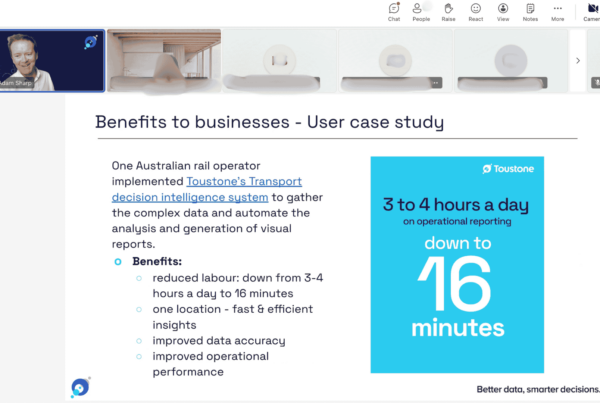
‘Traceability’ is not just the latest ESG buzz word, it is on the tip of everyone’s tongues for a reason. The Australian Government’s proposed climate disclosure regime is due to come into effect in January 2025. (Source) This means over the next few years, more than 6000 Australian companies will be required to report on their direct and indirect Greenhouse Gas Emissions, which includes the emissions from their supply chains, known as ‘Scope 3’. (Source)
So tracking the environmental impact of your company’s supply chain is increasingly becoming a necessity. And for more reasons than just meeting government mandates.
The most obvious is that an ethical business has an ethical supply chain. We are also increasingly seeing, a profitable business has a low emissions supply chain too. For example, Australian Software company Atlassian has pledged to have 50 percent of its supply chain set science-based targets by 2025 (source) on top of its commitment to be 100 per cent renewable by 2025. Inline with these ESG (Environment Social and Governance) goals and targets, Atlassian continues to show significant profit growth with a 24 per cent increase in revenue for the twelve months ending March this year.
We have summarised a few key ESG supply chain goals we often discuss with our clients, some great motivators to get on top of tracking your supply chain’s emissions now:
1. Regulatory Compliance:
I’m stating the obvious here but, all governments and international bodies are increasingly enacting regulations aimed at reducing environmental impact. Companies need to ensure their supply chains comply with these regulations to avoid fines, sanctions, and legal issues. For example, when the Australian Government’s Climate Disclosure Bill becomes law, it will be mandatory for certain sized companies to report on the emissions resulting from their supply chain. Beyond this there are several non-mandatory covenants, codes of conduct and certifications your business can sign up to, to increase its sustainability, credibility and ESG performance.
2. Risk Management:
Environmental issues, such as resource depletion, climate change and pollution, can pose significant risks to supply chains. By tracking environmental impacts with a tool which allows for auditable sustainability reporting, your company can identify and mitigate these risks, ensuring more stable and resilient operations.
3. Cost Savings:
This is one we really try to drive home as often there is immediate impact: Efficient resource use and waste reduction can lead to significant growth in top and bottom lines. Monitoring environmental impacts can help your company work with its supply chain to identify inefficiencies and implement sustainable practices, reduce costs in the long run. Now that would be music to any operator or CFO’s ears.
4. Brand Reputation and Customer Trust:
Consumers are increasingly concerned about the environmental impact of the products they buy. If your company can demonstrate a commitment to sustainability, including whom it chooses to do business with, it will enhance your brand and reputation, attract environmentally conscious customers and build stronger customer loyalty. This is why it is essential to be on top of the ESG of your suppliers.
5. Competitive Advantage:
Sustainability can be a key differentiator in the marketplace. Companies which proactively manage and reduce their environmental impact can gain a competitive edge over those that do not, attracting both customers and investors who prioritise environmental responsibility. Again, supply chain matters here, for investors will look at your overall environmental impact, including that of your supply chain (Scope 3 )to assess whether you are a risk to them.
6. Supply Chain Efficiency and Innovation:
Tracking environmental impacts of your supply chain encourages companies within your network to innovate and find more efficient ways to operate. This can lead to the development of new products, services, and processes which are both environmentally friendly and economically beneficial.
7. Long-Term Sustainability:
Ensuring sustainability of your supply chain is critical for the long-term viability of all businesses. By addressing environmental impacts, your company can help preserve the resources and ecosystems it depends on, securing your supply chain for the future.
By addressing these areas, your companies can not only fulfil its environmental responsibilities but also realise tangible business benefits and Return on Investment.
Data is always the foundation of a sustainable supply chain.
At Toustone, we get that to trace your entire supply chain can seem daunting, as it is usually not a straightforward process. So we have built a climate tech platform to simplify the reporting requirements for Scope 3. This includes the ability to trace, report on and understand the supplier footprint for industries with complex supply chains, like Fast-Moving Consumer Goods (FMCG), agriculture, transport, hospitality and manufacturing. Our Sustainability Suite Scope 3 solution is built on thousands if not millions of data points. Plus, our user-friendly dashboard provides clear insights, so you’ll always know where you stand and any given point.
Find out how Toustone’s Sustainability Suite can help you measure, report and forecast the impact of your supply chain.
Prefer a direct conversation? Talk to us for an explanation on how it all works, book one of our data experts or our ESG lead in for a chat.
Other Information Sources You Will Enjoy Reading
- World Economic Forum: https://www.weforum.org/reports/the-global-risks-report-2020
- MIT Sloan: https://sloanreview.mit.edu/projects/the-innovation-bottom-line/
- EPA Victoria https://www.epa.vic.gov.au/for-business/find-a-topic/manage-industrial-waste/used-packaging-materials
- Sustainability Victoria https://www.sustainability.vic.gov.au/about-us/legal-and-policies/supplier-code-of-conduct
- European Commission https://climate.ec.europa.eu/climate-change_en
- Deloitte https://www2.deloitte.com/us/en/pages/risk/articles/risk-management-in-supply-chain.html
- McKinsey https://www.mckinsey.com/business-functions/sustainability/our-insights/the-business-of-sustainability-mckinsey-global-survey-results



